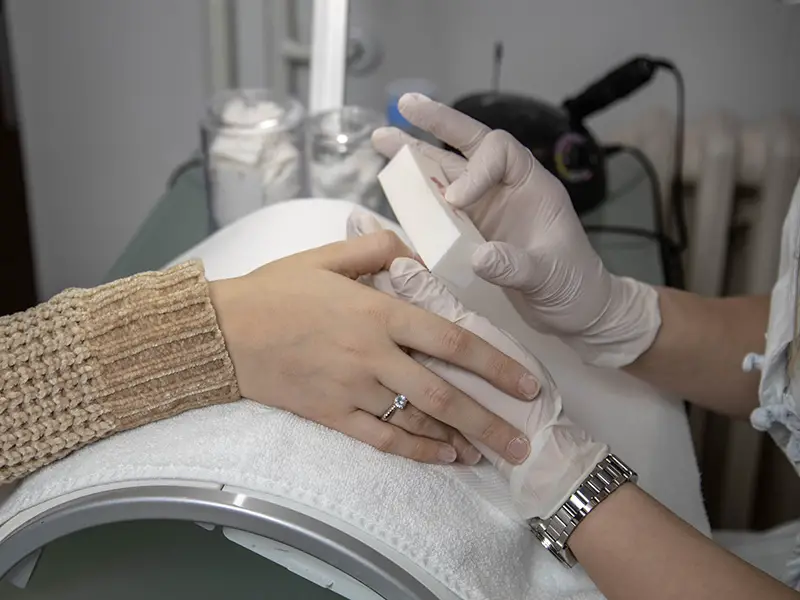Click here to get this post in PDF

Thanks to a combination of factors, it’s easier than ever to strike it out on your own as a nail technician without needing fixed premises. As a result, you can build up a reliable list of clients, build your reputation through word-of-mouth, and not have to contend with the hassle and cost of paying a landlord every month.
However, making a success of yourself in this line of work can be difficult. To succeed, you’ll need to make sure you do the right groundwork and preparation and that you’re ready for a range of circumstances.
Things to Consider
Before you enter the beauty market on your own, you’ll want to be sure you have a broad understanding of the industry and an idea of what things are like closer by. For example, if you live in a built-up urban centre, you might find reaching clients easier and making your business viable.
Get an idea of where the competition is fiercest, see who your local rivals are, and how you could be offering a better service.
You should also look into your insurance options. This is especially worthwhile, as you will be heading into other people’s property. Public liability insurance will protect you against any damage you unwittingly inflict on members of the general public.
Finally, you’ll want to consider the ongoing costs of the equipment you’ll be using. In the case of consumables, these costs can mount over time. This goes especially in the case of items that you’re reaching for frequently. For example, any small saving you can make on an acrylic nail kit will turn into a big saving over time.
What are the Pros and Cons?
Nail technicians go mobile for various reasons, some of which we’ve already touched upon. You’ll get the flexibility that comes with choosing your own clients and your own hours, and you’ll save money on premises. You can also fit your career as a mobile technician around other commitments – including work in a more traditional salon setting.
On the other hand, when you’re working for yourself, you won’t benefit from things like sick pay, and you’ll have to spend time and money managing your finances and dealing with other administrative tasks. You might recruit an accountant or other outside help – but this will add to your overall costs. Make sure you’ve accounted for all these costs when making the decision.
Getting your name out there
When you’re working freelance, you’ll need to ensure that your would-be customers know you exist. Build a good reputation with your clients, and ask them to recommend you to others. If you’re familiar with social networks and how to get the best from them, then make sure that you leverage them to their fullest potential. If not, this is another thing that you can outsource.
You may also like: Starting a New Beauty Salon Business
Image source: Pexels.com
